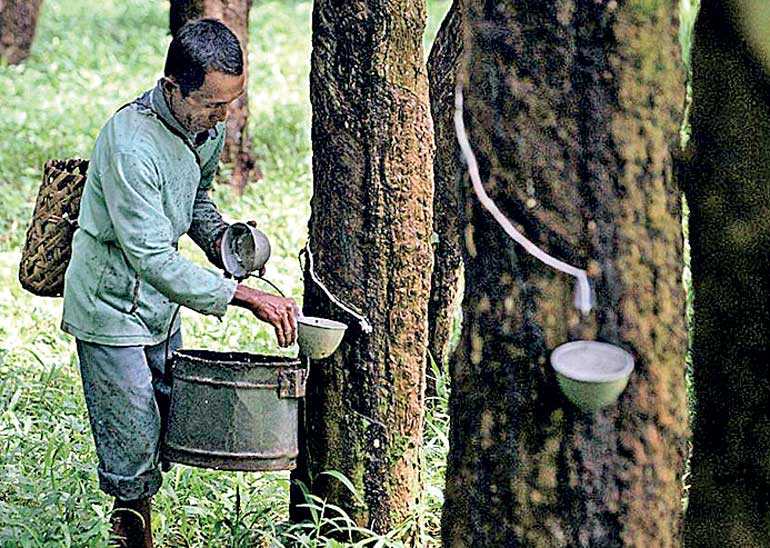Tuesday Feb 24, 2026
Tuesday Feb 24, 2026
Wednesday, 4 November 2015 00:00 - - {{hitsCtrl.values.hits}}

BANGKOK (Reuters): Thailand’s cabinet on Tuesday approved measures worth 13 billion baht ($365 million) to help rubber farmers and support falling prices, the director of a state rubber agency said.
Growing unhappiness among farmers hit by weak commodity prices and higher living costs, combined with an economy in the doldrums, has led the military government to rethink a pledge to wean farmers off the costly schemes of earlier administrations.
The government said it would pay a direct subsidy of 1,500 baht ($42.22) per rai (0.17 hectares) for up to 15 rai per household, Weerasak Kwanmuang, director of the Rubber Authority of Thailand, told Reuters.
Weerasak, who attended the cabinet meeting that approved the measures, said the government would take loans from the state-owned Bank of Agriculture and Agricultural Cooperatives (BAAC) and start paying farmers in December.
The direct subsidy is higher than a request made last week from 16 rubber farmer groups for payment of 1,250 baht per rai.
Around 850,000 families are expected to receive the handout in the world’s top producer and exporter of the commodity.
Documents outlining the new rubber measures were issued on Tuesday by the government, which took power after a bloodless coup last year. The measures will cover production, education and living expenses for rubber tappers, the documents show.
“I’m pleased, to an extent. I realise that this is just a temporary measure and it is not sustainable,” Soontorn Rakrong, a spokesman for 16 rubber groups in southern Thailand, told Reuters. “This is a first aid measure.”
Last week, Soonthorn had asked the government to pay a direct subsidy to rubber farmers.
The military government had slashed rural subsidies, saying it wanted to wean farmers, who make up a large proportion of Thailand’s population of 67 million, off expensive schemes used by previous civilian administrations.
Thailand’s benchmark unsmoked rubber sheet (USS3), which farmers sell to factories, was quoted at 37.99 baht ($1.07) per kg on Tuesday.
Thai RSS3 rubber was quoted at $1.23 per kg, its lowest since the grade dropped to $1 per kg in December 2008, according to the Singapore Commodity Exchange.
The aid for rubber farmers follows cabinet approval last week for measures worth about $1 billion to help rice farmers.
Some said the effort would not be adequate to take the sting out of falling prices, however.
“These measures aren’t enough,” northeastern rubber farmer Samai Sribang, 58, told Reuters. “I would rather see the government help raise rubber prices nationwide.”